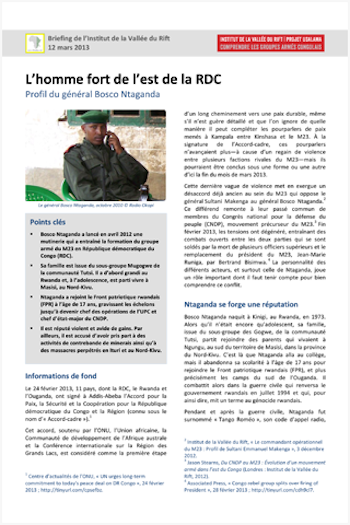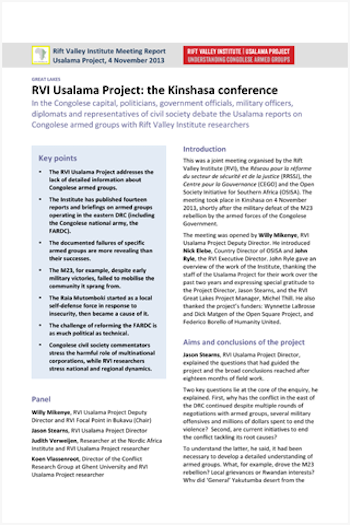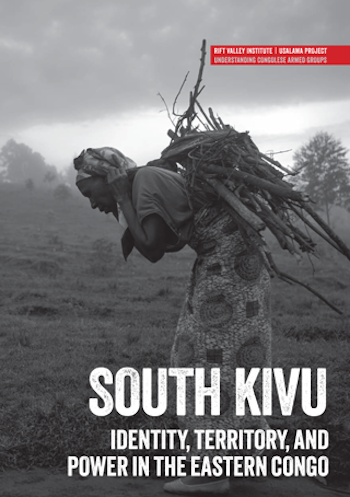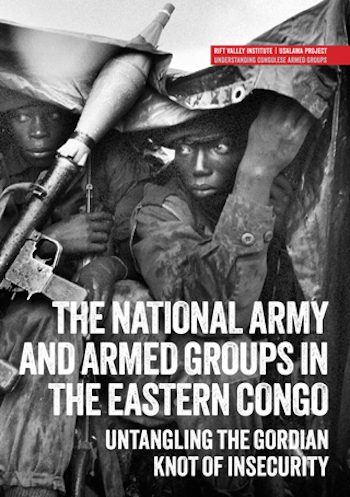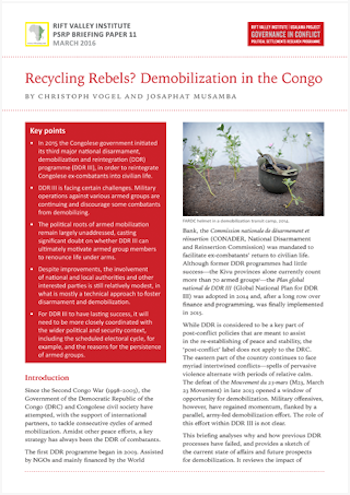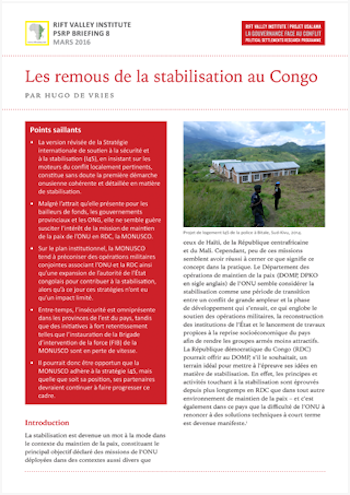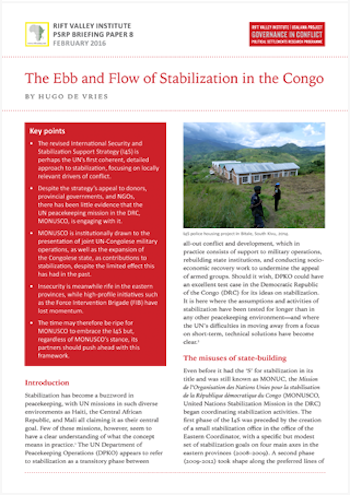Ce briefing du Projet Usalama présente un profil de l’un des commandants les plus importants du M23, le général Bosco Ntaganda. Malgré son inculpation par la Cour pénale internationale sur des accusations d’enrôlement et utilisation d’enfants soldats, de meurtre,…
RVI publishes books, research reports, research papers, briefings and meeting reports in a range of formats. Publications cover policy, research, arts, culture and local knowledge in the countries of eastern and central Africa. Research publications—books, reports and papers—are peer-reviewed. Some RVI publications are also available in French and/or Arabic.
The RVI is a signatory of the Budapest Open Access Initiative (2001); all publications are free for download in PDF format under Creative Commons licences. The views expressed in books and reports published by the RVI are those of the authors, not the Institute.
SEARCH
PUBLICATION TYPE
LANGUAGE
REGION
COUNTRY
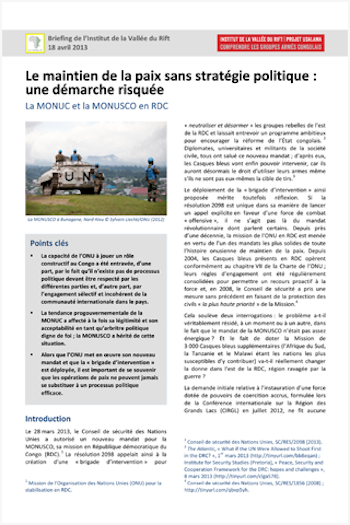
- By Emily Paddon
- Download
Ce briefing du Projet Usalama expose l’histoire de la participation de l’ONU dans l’est de la RDC et analyse les défis qui continuent de faire face à la mission, même au moment où elle se prépare à déployer une…
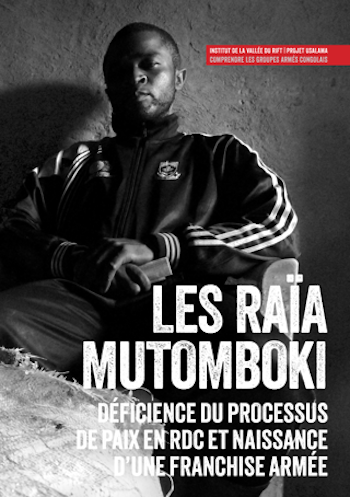
- By Jason Stearns
- Download
Ce rapport du Projet Usalama décrit les origines, l’évolution rapide, l’expansion et les activités de cette force diverse. Le groupe débuta comme une réponse locale à l’insécurité endémique, mais profita des déficiences dans les différents processus de paix à…
Key points The RVI Usalama Project addresses the lack of detailed information about Congolese armed groups. The Institute has published fourteen reports and briefings on armed groups operating in the eastern DRC (including the Congolese national army, the FARDC)….
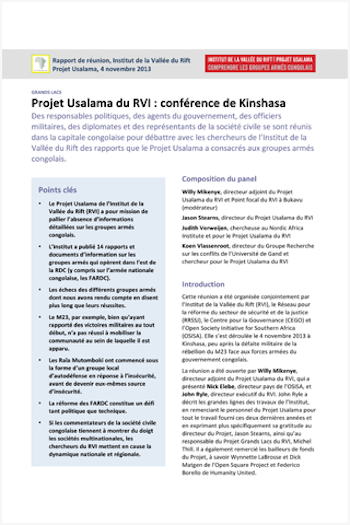
- By Michel Thill
- Download
Points clés Le Projet Usalama de l’Institut de la Vallée du Rift (RVI) a pour mission de pallier l’absence d’informations détaillées sur les groupes armés congolais. L’Institut a publié 14 rapports et documents d’information sur les groupes armés qui opèrent…
This Usalama report by Koen Vlassenroot outlines the historical dynamics behind the armed movements in South Kivu, focusing on the period before and leading up to the First Congo War. The province of South Kivu has been at the…
The Usalama Project is a gold mine of accessible information on Congolese armed groups. Its studies are, and will be, of great use for security sector reform in the Democratic Republic of the Congo. EMMANUEL KABANGELE, NATIONAL COORDINATOR, RRSSJ…
Since the Second Congo War (1998–2003), the Government of the Democratic Republic of the Congo (DRC) and Congolese civil society have attempted, with the support of international partners, to tackle consecutive cycles of armed mobilization. Amidst other peace efforts,…
La stabilisation est devenue un mot à la mode dans le contexte du maintien de la paix, constituant le principal objectif déclaré des missions de l’ONU déployées dans des contextes aussi divers que ceux de Haïti, de la République…
<p>Stabilization has become a buzzword in peacekeeping, with UN missions in such diverse environments as Haiti, the Central African Republic, and Mali all claiming it as their central goal. Few of these missions, however, seem to have a clear…
Recent Publications

Political Economy of Cash and Markets in Sudan
February 27, 2026
The research provides a snapshot of the war in Sudan in the period from February to April 2025. However, the war is dynamic, with political alliances and territorial control changing. The April 2023 conflict between the Sudan Armed Forces (SAF)

Rethinking Ethiopia II: Youth and politics
February 26, 2026
Seminar report Rethinking Ethiopia, a collaborative essay competition initiative between Addis Ababa University’s Institute for Peace and Security Studies (IPSS) and the Rift Valley Institute’s (RVI) Peace Research Facility (PRF), offers a platform for Ethiopian youth to express their ideas

2025 Year in Review
February 16, 2026
The 2025 Year in Review provides an overview of the Rift Valley Institute’s work over the past year across eastern and central Africa. The report highlights RVI’s research and publication outputs, education and training activities, and public forums and convenings,

